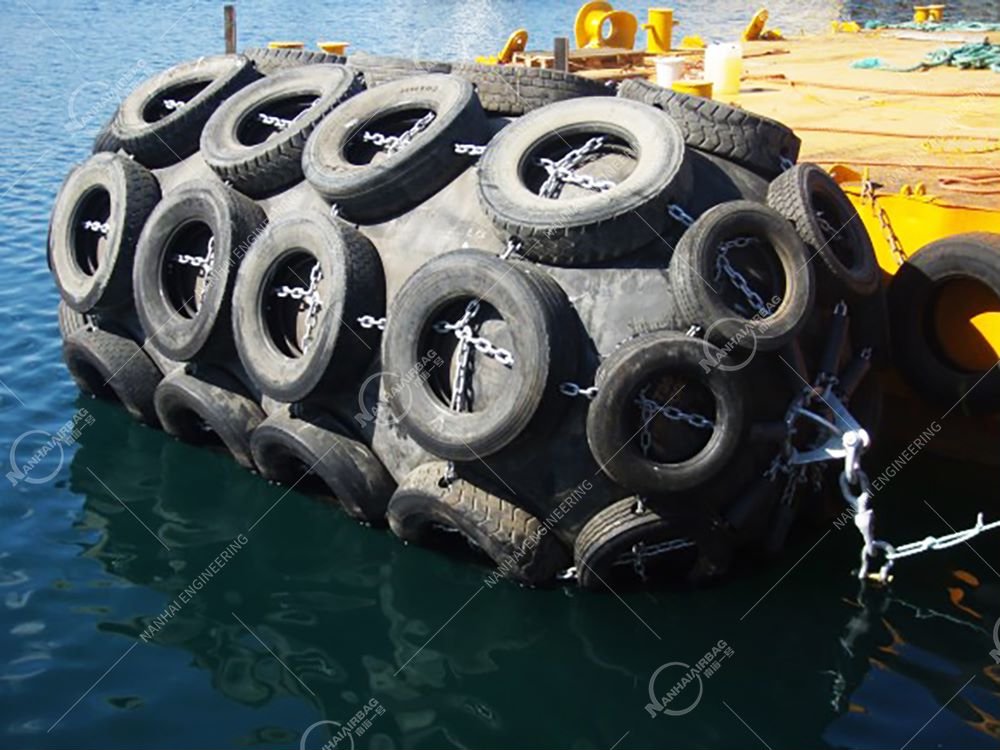NANHAI Protects your boat and dock
08/08/2024operation guidance- Best way to secure ship to ship transfer safely
09/08/2024“Enhancing Ship-to-Ship Transfer Efficiency in Indonesia: An Efficient Design Plan Using NANHAI Yokohama Pneumatic Rubber Fenders”
With the increasing activity in maritime trade in Indonesia, ship-to-ship (STS) transfer has become very important. STS transfer involves moving cargo from one ship to another at sea, typically for handling large quantities of goods such as oil, chemicals, or bulk materials. To ensure this process is both efficient and safe, reliable equipment is needed to protect the ships and cargo. This article will introduce NANHAI's design plan for using Yokohama fenders in Indonesia, highlighting their advantages in quality, material wear, and high performance.
important and affection of boat collision avoidance system catalog
显示Hide
Ship-to-Ship Transfer
1. What is Ship-to-Ship Transfer?
Ship-to-ship transfer (STS) refers to the process of transferring cargo from one ship to another at sea. This method is typically used when large ships cannot dock at a port or when there is limited space at the port. STS is mainly used for liquid cargoes such as crude oil, liquefied natural gas (LNG), or chemicals, but it can also be used for other bulk goods. STS transfer allows for more flexible and efficient cargo delivery and helps reduce port congestion.

2. Challenges of STS Transfer
- Safety: Conducting operations at sea poses risks such as ship collisions or oil spills.
- Equipment Requirements: High-performance fender systems and other equipment are needed to ensure stability and safety during the transfer process.
- Environmental Factors: Marine conditions like waves, tides, and weather can impact the transfer operation, so equipment must be ableto adapt to these changes.
Why Choose Yokohama pnuematic rubber Fenders?
1. Excellent Quality
Durable Materials: Yokohama fenders are made from high-strength synthetic rubber and steel cables, designed for durability and long-term use.
Strict Quality Control: Yokohama fenders undergo rigorous testing and inspection during production to ensure consistent quality.
2. Advantages in Material Wear
Wear Resistance: Yokohama pnuematicrubber fenders perform well under high-impact and long-term friction conditions, reducing maintenance frequency and costs.
Corrosion Resistance: Special anti-corrosion layers withstand sea salt and other corrosive elements, extending the floating rubber fender's lifespan and reducing replacement frequency.
High Energy Absorption: floaint rubber fenders effectively absorb impact forces, reducing the impact on ships and cargo during the transfer process.
Flexible Adaptation: With their elasticity and flexible design, Yokohama marine pnuematic fenders can accommodate various sizes and types of ships, offering high compatibility and flexibility.
Design Plan for Indonesia ship to ship

NANHAI's design plan for using Yokohama fenders in ship-to-ship transfer in Indonesia includes:
System Configuration
Choosing Yokohama Fenders:
Select Yokohama fenders with appropriate diameters and specifications based on ship types and transfer needs.
Placement Plan: Arrange multiple Yokohama fenders in the transfer area to ensure optimal protection and cushioning.
Installation and Maintenance:
Develop a detailed installation and regular maintenance plan to ensure long-term reliability of the fender system.
Adapting to Local Environment
Weather-Resistant Design: Choose materials that can withstand the hot and humid climate of Jakarta and other coastal areas.
Safety Standards: Comply with local port and maritime safety standards in locations like Surabaya and Batam, and provide certifications and reports that meet Indonesian regulations.
Conclusion
NANHAI’s design plan for ship-to-ship transfer using pnuematic rubber fenders not only meets the practical needs in Indonesia but also shows significant advantages in quality, material wear, and performance. With precise design and quality material selection, this solution will enhance the efficiency and safety of ship-to-ship transfers at Indonesian ports, supporting local maritime trade activities effectively. The friendship between China and Indonesia endures, and we look forward to further cooperation and development in many areas in the future.
More video
